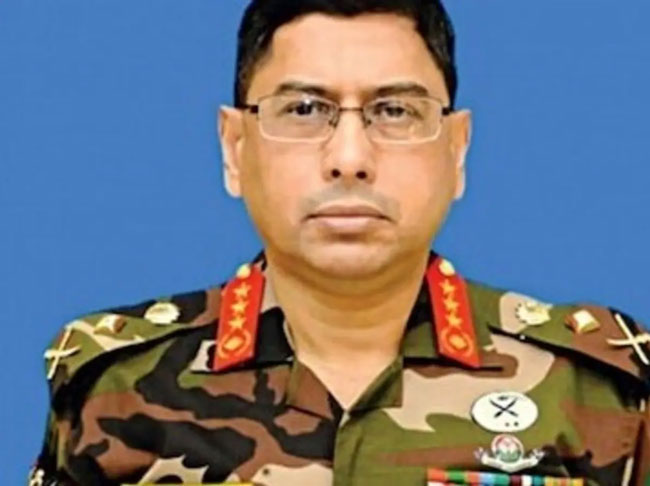Desk:Amid ongoing tensions between India and Bangladesh over the past few months, Bangladesh’s Army Chief, General Waker-uz-Zaman, has emphasized the significance of relations between the two nations. He stated that India is a crucial neighbor, and Bangladesh desires a relationship based on fairness. Addressing recent disputes, General Zaman mentioned that Bangladesh depends on India in several ways and will not act against New Delhi’s strategic interests.
In an interview with Bangladesh’s leading newspaper, Prothom Alo, Zaman highlighted India’s interest in Bangladesh’s stability. He underlined the transactional nature of their relationship, insisting it must be equitable. This was General Zaman’s first interview after former Prime Minister Sheikh Hasina sought refuge in India following significant unrest and protests in Bangladesh on August 5 last year.
The ties between India and Bangladesh have seen a steep decline since the formation of the caretaker government led by Nobel laureate Muhammad Yunus. India expressed concerns over attacks on Hindu minorities in Bangladesh. However, the Yunus government strained bilateral relations further by arresting Hindu saint Chinmoy Krishna Das on sedition charges.
According to the translated version of the interview on the newspaper’s website, General Zaman said, “India is an important neighbor. We depend on them in many ways, and they benefit from us as well. Many of their people, formally and informally, work in Bangladesh, while many from here seek medical treatment in India. We also import a significant amount of goods from them. India has a vested interest in Bangladesh’s stability. The relationship between our countries is transactional and must be based on fairness.”
On the question of ensuring the security of India’s northeastern states, Zaman reassured that Bangladesh would not allow any activity against India’s strategic interests. He referred to Sheikh Hasina’s past efforts in cracking down on anti-India insurgent groups that had previously established hideouts within Bangladesh. Unlike earlier governments that turned a blind eye to these groups, Hasina’s administration took significant steps to dismantle their networks.
Zaman also mentioned that Bangladesh expects reciprocity from India on sensitive issues, including water-sharing agreements and alleged killings of Bangladeshis along the border by Indian security forces. He remarked, “India must not kill our people at the border. We should receive our fair share of river water. Our relations should remain balanced, and the people of Bangladesh must not feel dominated by India, as this goes against our interests.”
Addressing defense cooperation with China, General Zaman called for a balanced approach. He stated that Bangladesh’s foreign policy emphasizes friendship with all and malice toward none. “China is a partner in our development and has made significant investments in Bangladesh. We rely on their weapons for our armed forces as they are comparatively affordable,” he explained, adding that both the Air Force and Navy use Chinese equipment.
General Zaman concluded by stressing that Bangladesh will not permit instability in the Chittagong Hill Tracts or along the Myanmar border, reaffirming Bangladesh’s commitment to regional peace and stability.




